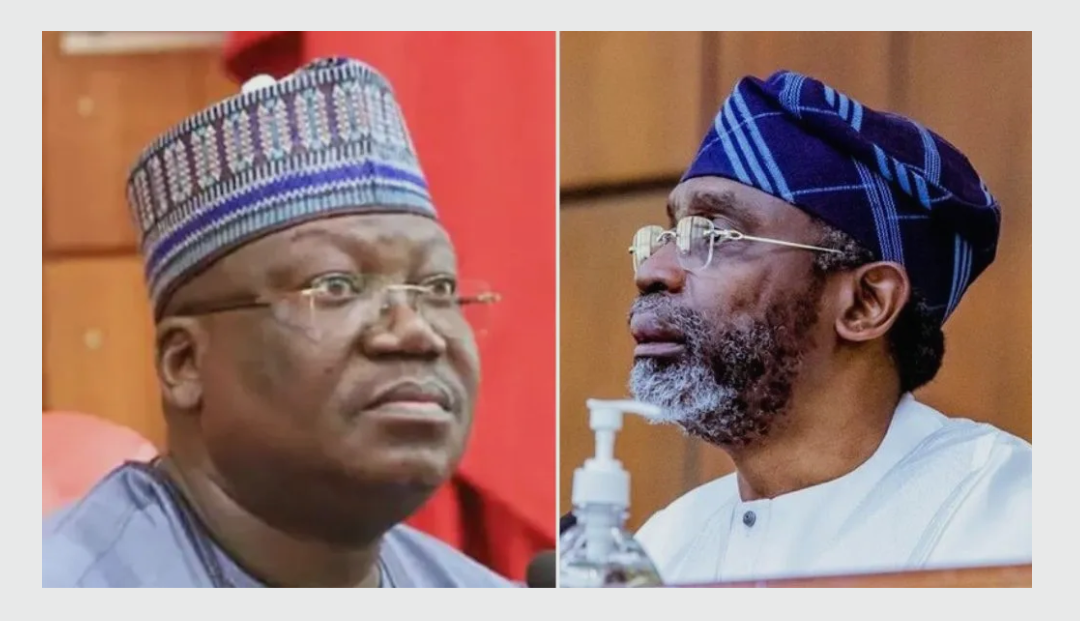Economy
JUST IN: Lawan, Gbajabiamila dragged to court over N228.1bn National Assembly budget
The Socio-Economic Rights and Accountability Project (SERAP) has filed a lawsuit against the Senate President, Dr. Ahmad Lawan, and Speaker of the House of Representatives, Mr. Femi Gbajabiamila for failing to reduce the budget of the federal legislative houses.

This was contained in a statement issued on Sunday, February 5, 2023, by SERAP’s Deputy Director, Kolawole Oluwadare.
The suit followed the move by the National Assembly to increase its 2023 budget from N169bn proposed by President Muhammadu Buhari to N228.1bn.
The approved budget indicated an increase of about N59.1bn. The country’s budget of N21.83 trillion is based on a N10.49 trillion revenue, and N11.34 trillion deficit.
In the suit number FHC/ABJ/CS/152/2023 filed last Friday at the Federal High Court in Abuja, SERAP is seeking: “an order of mandamus to direct and compel Dr Lawan and Mr Gbajabiamila to review and reduce the budget of N228.1 billion the leadership and members of the National Assembly allocated for their own benefit.”
The suit also asked the court to stop the Minister of Finance, Budget and National Planning from releasing National Assembly Budget until impact analysis is conducted.
It argued that the NASS budget is unnecessarily higher than the budget for Education.
SERAP said government cannot continue to fund the lavish lifestyle of lawmakers despite most Nigerians living in poverty.
The group described the increase in the NASS budget as unreasonable, unlawful and unfair amid the country’s heavy debt crisis.
SERAP said cutting NASS budget would address the nation’s debt burden and serve public interest.
The suit partly reads;
“The budget should reflect national development priorities, and not serve as a tool to satisfy the lifestyle of lawmakers or provide them with severance payments or parting gifts.
“Rather than exercising its oversight functions to check the persistent borrowing by President Muhammadu Buhari, and scrutinising the apparently unlawful overdrafts and loans obtained by the Federal Government from the Central Bank of Nigeria, the National Assembly is increasing its own budget.
“The increase in the National Assembly budget, including the unnecessary proposed spending of N30.17bn on ‘severance payments’ and ‘inauguration expenses’ is a fundamental breach of the Nigerian Constitution of 1999 [as amended] and the country’s international human rights obligations.
“It is unjustifiable and unreasonable for the National Assembly to arbitrarily increase its own budget when the Federal Government and many of the 36 states are clearly in debt distress or at high risk of debt distress.
“The National Assembly budget of N228.1bn would increase the country’s borrowing and debt crisis. Growing debt burdens and debt repayment difficulties will have negative impacts on the ability of poor and vulnerable Nigerians to enjoy basic socio-economic rights.
“Long-term unsustainable debt can be a barrier to the government’s ability to mobilize resources for human rights, and may lead to taxes and user fees that impact negatively on poor and vulnerable Nigerians.
“The leadership and members of the National Assembly ought to properly discharge their constitutional and fiduciary duties to Nigerians by ensuring judicious spending of public funds, especially given the current economic and financial realities of Nigeria.
“Nigerians have a right to honest and faithful performance by their public officials including lawmakers, as public officials owe a fiduciary duty to the general citizenry. All those who hold the strings of political power and power over spending of Nigeria’s commonwealth ought not to use their entrusted position for personal gain.”
“Section 14(2)(b) of the Nigerian Constitution of 1999 [as amended] provides that, ‘the security and welfare of the people shall be the primary purpose of government.
“Under Section 16(1)(a)(b), the National Assembly has the obligations to ‘harness the resources of the nation and promote national prosperity and an efficient, a dynamic and self-reliant economy’, and to ‘secure the maximum welfare, freedom and happiness of every citizen.’
“Section 81 of the Nigerian Constitution makes clear that it is the constitutional responsibility of the President to prepare and present estimates of the revenues and expenditure of the country before the National Assembly and not for the lawmakers to unilaterally and arbitrarily allocate public funds to themselves”.
Follow us on social media:-

 News2 days ago
News2 days agoVideo trends as Nigerian lady transforms face into Jesus Christ with makeup (Watch)
-

 News2 days ago
News2 days agoFarmer k!lled, three siblings and one other severely injured as bomb explosions rock Niger state community
-

 Crime2 days ago
Crime2 days agoLady swaps old woman’s ATM card while pretending to help, steals N2M
-

 Celebrity Gossip & Gist22 hours ago
Celebrity Gossip & Gist22 hours ago“The money wey dem pay me don expire” – Moment Burna Boy stops his performance at the Oando PLC end of the year party (Video)


